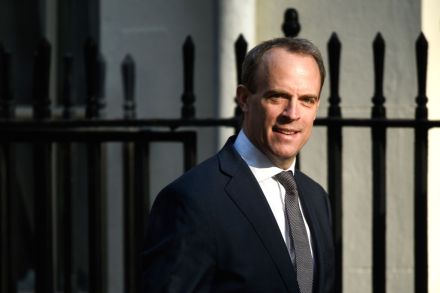The five tests for easing the lockdown
15 min listen
As expected, Dominic Raab announced an extension to the lockdown today, with no clear end date set. But he did offer insight into the criteria that the government is using to judge when that time might come. Katy Balls writes about it here and she discusses them on the latest episode with James and Cindy. The difficulty comes from tests four and five – in particular, some in government tell James that the goal to carry out 100,000 tests per day may not be met until mid-May. In this episode, James also reveals that the government is considering changing its advice on masks. As Chris Whitty said today, Sage is revisiting the




















